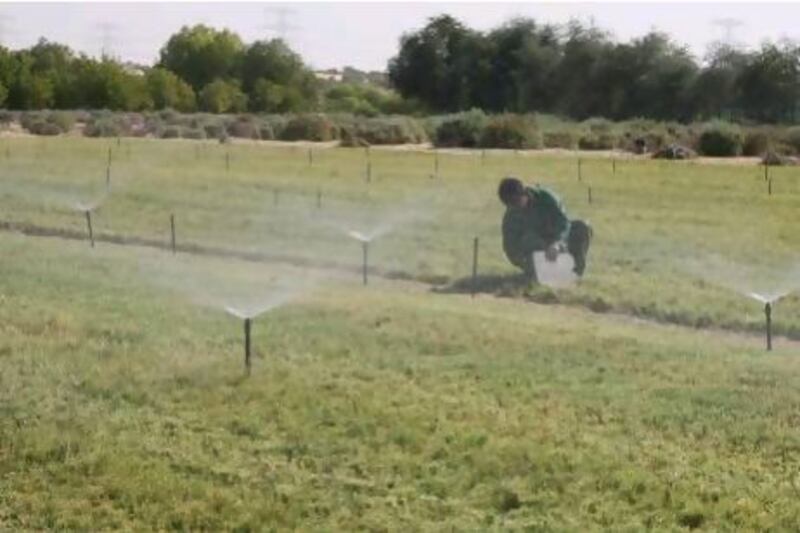DUBAI // A Dubai agriculture centre is about to enter a new phase in its mission to make the world's farms more efficient.
Eighteen months ago, the International Centre for Biosaline Agriculture (ICBA) in Dubai launched a Dh22 million project to find ways of reversing damage caused to land by climate change and poor farming practices.
Now its is planning to give farmers from eight Middle East countries the skills they need to grow their crops in a sustainable way.
"West Asia and North Africa are [among] the most vulnerable regions for the impact of climate change," said Dr Abdullah Dakheel, head of the project at ICBA.
"It's becoming drier and hotter, so increasing temperatures and a reduction in the amount of rainfall have made it much worse for most of our agriculture."
The project covers the UAE, Oman, Yemen, Jordan, Palestine, Syria, Egypt and Tunisia, and aims to help farmers make their land more resilient to changing environmental conditions.
"In anticipation of further deterioration we are looking at big impacts of climate change on marginal lands, specifically where a lot of people depend on their livelihoods," said Dr Dakheel.
"If you look at the eastern part of Syria in the last three years, there has been severe drought."
Although few Emirati farmers are poor by international standards, their land could be made more productive in a sustainable way, allowing them to earn more.
The project set up model farms in each country to teach farmers what to grow and how best to grow it in the harsh Gulf climate. There are four such farms in Al Gharbia.
It also teaches them how to grow and store the most suitable feed for their livestock to make sure no nutrition is wasted.
"We worked on identifying thousands of resilient genotypes of certain important crops such as barley, which is a [vital] forage-feed crop in the region," said Dr Dakheel.
"We found out which had the potential of being more resistant to the heat, salinity and drought while being more productive."
It identified 15 suitable crops including triticale - a hardy wheat and rye hybrid - and brassica, including cabbage, broccoli and cauliflower.
There were also forage crops, including pearl millet and sorghum, to improve food for livestock.
"This is one of the weaknesses in the Middle East," said Dr Dakheel. "The tradition is just directly feeding the animal on plants that are produced but there are many other things that we can do to improve that."
Forage crops can be processed into silage or feed blocks, and made more nutritious by adding urea for protein or molasses for fermentation.
A challenge now is to make the feed keep for longer, so the product of a single harvest can be used all year, instead of a month or two, by processing it into silage or blocks and storing it properly.
In November, the project will gather a few farmers from each country to a school in Egypt to show them how they can improve each aspect of their farming. It will include the type of fertiliser used, irrigation methods, preparing soil, ploughing, care of the plants from seed to harvest and improving crops' value.
Dr Dakheel said it was hoped these farmers would go home and pass the word on to their peers.
"It sounds like a sensible plan," said Nicholas Lodge, an agricultural specialist at the economic consultancy Clarity in Abu Dhabi.
"I don't think it's the single solution to food-supply issues, but then again I'm not sure there is a single solution.
"Any training or programme that can help people be more efficient and increase production with these resources would be helpful."
Six hundred farmers are part of the scheme but the target is to recruit more than 1,000 in the next year.
"The demand is really high but we need seeds to meet it, so now we're focusing on how to produce them locally," said Dr Dakheel.
"We select the best seeds adapted to their local condition and they're not available commercially so they have to be produced locally. [Then] the expansion can start."






